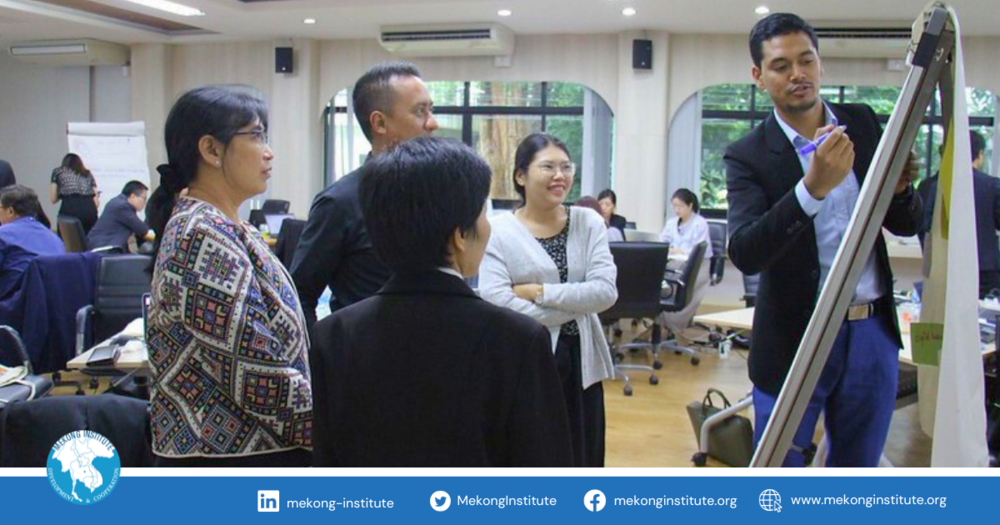MI Headquarters, Khon Kaen, September 25 – 29, 2023 – To cultivate an enabling and vibrant ecosystem for e-commerce in the Mekong region, Mekong Institute (MI) organized a weeklong regional training on “E-commerce Policy Development and Implementation Strategies for SMEs Development” funded by the AEM-METI Economic and Industrial Cooperation Committee (AMEICC). The modular training sought to equip government officials and key stakeholders from Cambodia, Lao PDR, Myanmar, Viet Nam, and Thailand (CLMVT) with the necessary knowledge and network capacity to create a conducive e-commerce ecosystem that enhances SMEs’ competitiveness in the global market.
Catering to 25 participants representing relevant government agencies and private sector associations in CLMVT, the activity offered an immersive learning environment enriched by case studies, interactive discussions, and practical examples, zeroing in on the intricacies of e-commerce policy and strategy formulation and its direct impact on SMEs.
The training emphasized the significance of embracing e-commerce in today’s global economy. E-commerce is transforming trade and business strategies globally, offering Mekong countries the opportunity to enhance international market access for businesses, particularly SMEs, without costly physical investments.
Mr. Kohei Shinji, Deputy Representative of the AMEICC Secretariat at AOTS Bangkok graced the training program and highlighted the importance of collaborative efforts among governments and businesses to harness the full potential of e-commerce in the Mekong region.
The training program consists of five modules covering various aspects of cross-border e-commerce, including its economic impact, market conditions, legal and regulatory frameworks, and strategies to empower SMEs in the digital marketplace.
Alumni from this training will form the national pool of resource persons to conduct national workshops with key relevant representatives from concerned government agencies and private sector in CLMVT. Participants crafted action plans on advancing e-commerce tailored to their country’s specific needs and challenges. These action plans will be instrumental in promoting e-commerce and digital trade within the region.
After a series of in-country activities to be led by training alumni through their respective action plans, MI will reconvene the participants to synthesize and evaluate modular training results, share best practices, discuss challenges, and chart the way forward for sustained e-commerce development in Mekong countries.








